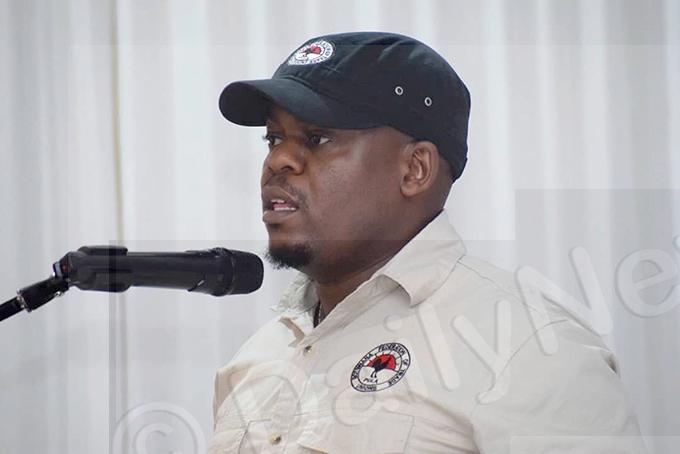African media must leverage on its influence
05 May 2024
This year’s International Press Freedom Day serves as both a beacon of hope and a call to action for African media, says President Dr Mokgweetsi Masisi.
Addressing the media virtually on World Press Freedom Day, Saturday, Dr Masisi said the day also compelled the African media to leverage on its influence to raise awareness and reshape narratives about the continent to foster collective efforts toward environmental conservation and sustainability.
“This means, more than ever before, that you also have responsibility to sell the African story from the African perceptive, highlighting our success stories and challenges applicable to our continent,” he said.
President Masisi urged media professionals to frame the African narrative with a sense of social responsibility, understanding that alongside media freedom they were corresponding obligations of responsible journalism.
“Continue to adhere to professional codes of ethics and standards that ensure that your work contributes to fostering a well-informed and democratic society while avoiding harm or exploitation,” said President Masisi.
The theme: A Press for the Planet: Journalism in the Face of the Environmental Crisis, President Masisi said was timely as the world confronted increasing complex environmental issues each day as it highlighted the critical role that journalism played in addressing such challenges.
President Masisi said the theme encouraged the media to actively engage on environmental issues, reporting on them accurately and ethically to raise awareness and facilitate informed public discourse.
“It urges journalists to report on environmental issues accurately and comprehensively by providing the public with necessary information and context to understand the complexities of environmental challenges and explore viable solutions thereof,” he said.
He said the theme underscored the importance of journalists and media organisations in advocating for environmental protection, sustainability and meaningful action to mitigate the impact of environmental degradation.
The world is at the threshold of a final decade of Sustainable Development Goals, which were adopted by all United Nations member states in 2015 as a universal call to action, to end poverty, protect the planet and ensure that all enjoyed peace and prosperity by 2030, President Masisi said. He said the final decade leading up to 2030 represented a critical period for accelerated action and collaboration to achieve the ambitious goals during which UN member states must strive to fulfill their commitment to the future of the planet.
Therefore, he said World Press Freedom Day theme was a call to re-centre and reaffirm the role of African media particularly in the region, to mainstream reporting on SADC programmes, on the environment.
He said a pressing challenge facing Botswana was the growing elephant population, which currently stood at approximately 130 000. “This is a topical subject lately and has been making headlines across media houses world-wide,” he said.
President Masisi said it was regrettable that some in the Western media had been wanting when it came to providing accurate information on environmental crises and human-wildlife conflict in Botswana, especially incidents involving elephant-caused fatalities.
“Reports indicate that 67 people were killed by elephants between 2009 and 2019, the highest number of victims caused by wild animals in Botswana. This is a story that has failed to grab headlines in the Western media. Most notably absent is coverage of environmental issues caused by elephants, including land degradation, deforestation, and biodiversity loss, which could degenerate into an ecological crisis particularly in our drought-prone Botswana,” said President Masisi. He further urged the media to recognise the importance that countries in the SADC region attached to sustainable use and management of the environment in the fight against poverty and food insecurity.
He said the commitment was enshrined in the SADC Treaty that established the organisation in 1992 and demonstrated by active participation in negotiations and ratification of major Multilateral Environmental Agreements.
“In that breadth, SADC has put in place Environment and Climate Change Programmes that seek to facilitate implementation of the Regional Indicative Strategic Development Plan (RISDP), Africa Agenda 2063 and Sustainable Development Goals (SDGs),”he said. ENDS
Source : BOPA
Author : Moshe Galeragwe
Location : GABORONE
Event : International Press Freedom Day
Date : 05 May 2024





